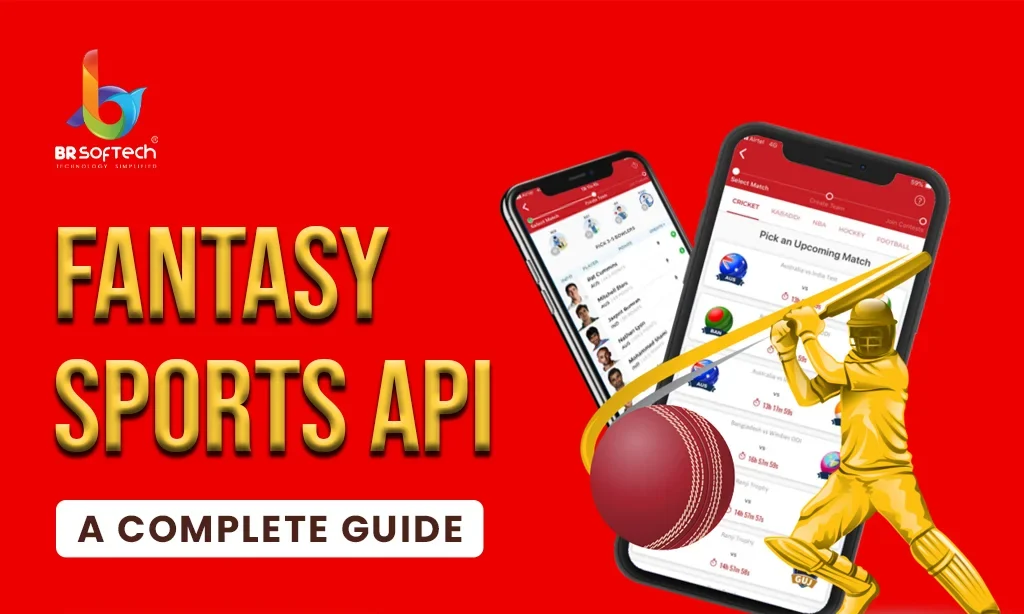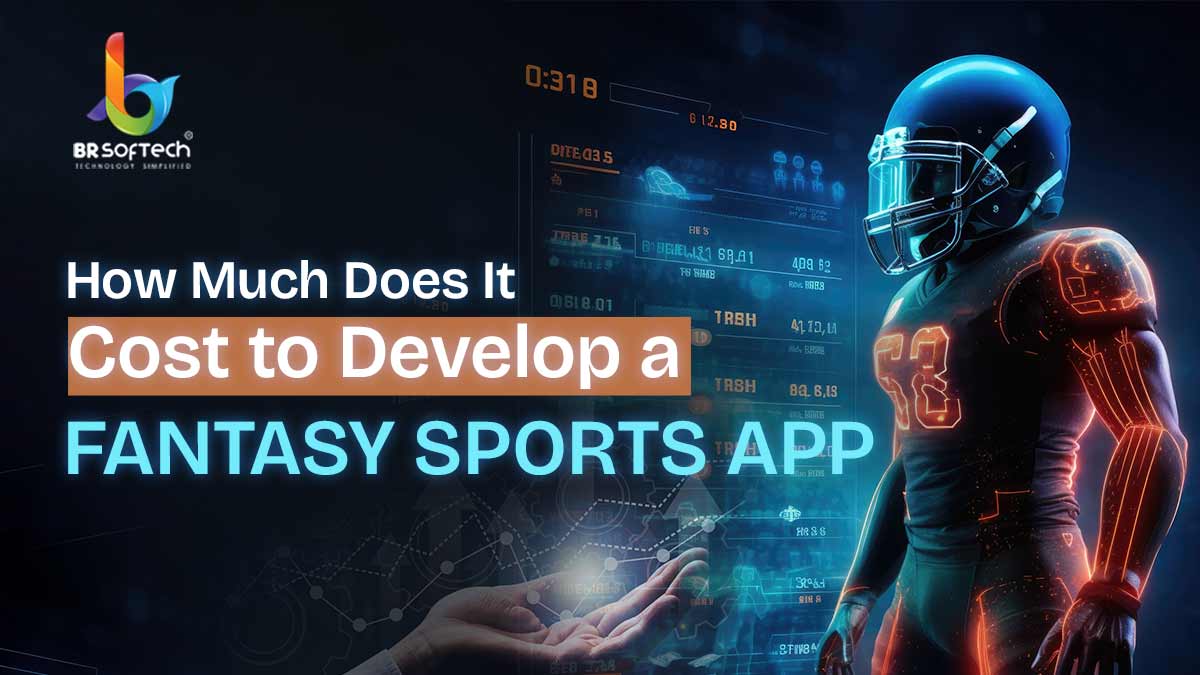Fantasy sports have transformed how fans engage with their favorite games, blending competition with data-driven decision-making. A Fantasy Sports API powers this innovation, enabling businesses to create immersive and user-centric platforms that captivate sports enthusiasts worldwide.
With the rise of platforms like Dream11, MPL, PrizePicks, Underdog Fantasy, and Yahoo Fantasy Sports, the demand for fantasy API solutions has surged. These APIs allow developers to build robust platforms across multiple sports, from fantasy football API and fantasy cricket API to basketball, baseball, and more.
Whether you’re an entrepreneur tapping into the booming fantasy sports industry or a developer crafting next-gen platforms, this guide provides an in-depth look at fantasy sports platform API solutions and why they are game-changers. We’ll cover standout features, costs, implementation strategies, and the latest industry trends to help you make informed decisions.
What is a Fantasy Sports API?
A Fantasy Sports API is a structured framework that provides real-time sports data such as player stats, match schedules, and live scores. It plays a crucial role in fantasy sports app development, enabling real-time updates and a seamless user experience.
These APIs simplify development by offering pre-built functionalities, ensuring accurate and up-to-date information for users. Whether you’re building a fantasy league API or a sports analytics API, choosing the right API provider is crucial for performance and reliability.
How Does A Fantasy Sports API Work?
A fantasy sports API works simply by providing sports data to a fantasy sports app, enabling users to track player performance, and results, and match stats for better fantasy team management. Here’s how it functions:
1. Data Collection:
API collects data from various sports events in real-time, even the smallest key metrics on runs, goals, assists, injuries, etc match outcomes, injuries, and other key metrics. API sources this data from official sports data providers.
2. Data Transmission:
The collected data is sent via API endpoints. These endpoints are essentially access points that allow the fantasy sports platform to request specific information. Here the specific information is only the data that is allowed to be accessed and transmitted to the platform authentically.
3 Integration:
When a user interacts with the fantasy app (e.g., creating a team or viewing player performance), the app makes API calls to the fantasy sports API to fetch the latest data. The API responds with this data in a structured format, usually JSON or XML
4. Real-Time Updates:
As the game progresses, the API continuously updates the platform with live scores and player stats, ensuring the users always have the most recent information to make decisions for their fantasy teams.
On a conclusive note, the fantasy sports API streamlines the integration process of live sports data into the applications which makes it easier for developers to deliver updates and features for users.
Step-by-Step Integration Guide for Fantasy Sports API
Integrating a fantasy sports data API into your app or website involves several key steps to ensure smooth functionality and real-time data delivery. Here’s the integration process:
Step 1. Choose a Reliable Fantasy Sports API Provider:
The first step is to search for a fantasy sports API provider that provides reliable integration services and provides the data you are looking for. Finalize Select a sports data provider that aligns with your needs. Popular providers include SportsDataIO, Sportradar, and GoalServe.
Step 2. Understand API Documentation:
After you have finalized the API provider, begin by reviewing the API documentation from the provider. This will give you an understanding of available endpoints, data formats (like XML or JSON), authentication methods, and rate limits (how often you can request data).
Step 3. Register and Obtain API Keys:
To authenticate your app with the API, the first thing you must do is register yourself with the API provider. Once registered, you’ll receive an API key which is used to make secure requests to the provider’s server.
Step 4. Set Up Your Development Environment:
Ensure your development environment is ready. Install the required programming tools and libraries (like Python, Node.js, or PHP) for making HTTP requests and handling API responses.
Step 5. Test API Endpoints:
After you have set up the environment, use tools like Postman or cURL to test different API endpoints and ensure the data is being fetched properly. Testing is crucial to avoid unexpected situations and also helps you verify the response format and troubleshoot any issues.
Step 6. Implement API Calls in Your App:
By using your chosen programming language, integrate the fantasy sports platform API into your app by making HTTP requests to the appropriate endpoints. You’ll need to send the API key to the request handler for authentication.
Step 7. Launch and Monitor:
After you have implemented the API, it’s time to launch your app/website and monitor its performance. Optimize it for scalability and track for errors ( if any occur) to ensure a smooth user experience.
With these steps, you can efficiently perform fantasy API integration and offer real-time data to enhance your platform.
Key Benefits for Developers and Businesses
Fantasy sports APIs bring a range of benefits to both developers and businesses by providing real-time sports data and advanced functionality.
Benefits For Developers
- Reduces development time through pre-built solutions for retrieving real-time sports data API.
- Customizable endpoints enable tailored fantasy league API experiences.
- Enhances platform performance with player stats API and analytics.
Benefits For Businesses
- Boosts user engagement and retention through sports analytics API.
- Supports high-traffic loads during major tournaments.
- Enables monetization via ads, subscriptions, and in-app purchases.
- Offers custom fantasy sports platform API development for unique branding.
Top 6 Fantasy Sports APIs in 2025
Here are the top and most widely used fantasy sports APIs in 2025, along with their key features, pros, and cons:
1. Yahoo Fantasy API
- Features: League creation, player stats, trading options.
- Pros: Offers a free tier for basic functionalities.
- Cons: Provides limited real-time updates.
2. ESPN Fantasy API
- Features: Comprehensive sports data, player stats, league creation, and live scoring updates.
- Pros: Highly robust analytics and integration options with ESPN’s sports ecosystem.
- Cons: Limited access for non-commercial users; requires a subscription for advanced features.
3. SportsDataIO API
- Features: Detailed player and game statistics, historical data, and live updates.
- Pros: Offers a trial and supports multiple sports with detailed documentation.
- Cons: Premium plans are relatively expensive.
4. Sportradar API
- Features: Real-time game tracking, historical stats, and multi-sport coverage.
- Pros: Supports over 80 sports and is highly scalable.
- Cons: Advanced features are only available in high-tier plans.
5. Fantasy Premier League API
- Features: Gameweek data, player rankings, and manager details.
- Pros: Highly detailed player performance metrics.
- Cons: Complex integration for new developers.
6. GoalServe API
- Features: Real-time live scores, fixtures, results, and fantasy data.
- Pros: Flexible subscription options, including specific sports or leagues.
- Cons: Requires a minimum subscription starting at $150.
These APIs cater to different needs, whether you’re creating fantasy apps or websites or integrating sports data.
Different Types of Fantasy Sports API Based on Games
Take a look at the different types of APIs based on fantasy games.
1. Cricket Fantasy API
Offers live scores, player stats, and match details, for creating cricket fantasy leagues. This fantasy cricket API supports features like team creation, point calculation, and real-time match updates.
Also Read: Cricket API Provider
2. Fantasy Football API
Provides data for leagues, fixtures, player performance, and goals across football tournaments. The fantasy football stats API is ideal for building fantasy football apps with live match tracking and in-depth analytics.
3. Fantasy NBA API
Specializes in player stats, game schedules, and live updates for NBA fantasy leagues. Helps in drafting, scoring, and managing fantasy basketball teams in real time.
4. Basketball Fantasy API
Covers player performance, team stats, and live game feeds for global basketball leagues.
It also supports custom scoring systems and detailed player analytics for fantasy platforms.
5. Fantasy Baseball API
Offers historical data, player stats, and game results for fantasy baseball competitions.
Includes live match tracking, team management, and seasonal performance insights.
Most APIs including odds API, ESPN fantasy API, Yahoo fantasy API, etc, provide multiple sports data integrations covering a range of sports from cricket, and soccer, to baseball, and more.
Conclusion
A fantasy sports API significantly enhances user experience and platform functionality by delivering real-time data. It helps businesses scale while improving engagement and monetization opportunities. Whether you’re building a custom sports API development project or integrating a well-known provider, choosing the right API is crucial for long-term success.
Get Free Fantasy Sports API Demo
We have a team of experts who can hlp you with Fantasy App Web & Software Development
Frequently Asked Questions
Q.1 Can one API support multiple sports? Ans. Yes, multi-sport APIs like SportsDataIO and Sportradar provide diverse data options.
Q.2 How secure are Fantasy Sports APIs? Ans. Most providers use OAuth authentication and encrypted transmission for security.
Q.3 What is the cost of integrating a Fantasy Sports API? Ans. The cost of Fantasy API integration depends on the type of features and its accessibility to the platform. Most of the time the cost comes as the subscription model starts from $1500 to $5000+ per month. If you share your project details with BR Softech, you can get the exact cost estimate.
Q.4 Can I customize the fantasy sports API? Ans. Many API itself comes customized and it’s up to you what features you want to integrate into your platform. Some APIs are not customizable providing only fixed type of data.
Q.5 How does a fantasy API work? Ans. A fantasy sports API fetches real-time data from live sports events. These data include player performance, stats, and game results delivered to fantasy sports platforms. It allows users to build and manage teams, track scores, and engage in gameplay based on actual sports performance.












